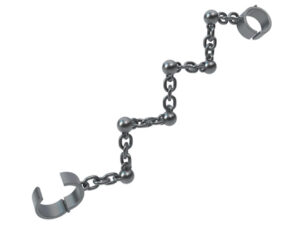Unlike many states California does not categorize felonies into different levels or classes, such as Class A or Level 1. Instead, felony crimes are classified based on their severity and determined by the punishment specified under the law.
The consequences of a felony conviction can significantly impact your life. If you or someone you know has been charged with a felony it’s important to understand the situation fully. Knowing how the state treats different offenses and levels of felony charges in California can help you find the right defense. In any and all cases the need to hire an attorney who can provide the expertise needed to navigate California’s complex legal system is imminent.
Terms to Know
A felony is a serious crime punishable by death, imprisonment, or for certain lesser felonies, incarceration in county jail. Misdemeanors are punished with fines and/or up to 12 months in county jail. An infraction is considered the least serious offense among the three categories. The penalties for Infractions usually lead to monetary fines and sometimes require the completion of community service.
Specific penalties for felony levels in California vary depending on several factors, including:
- The harm caused by the offense
- The degree of violence involved
- The impact on victims and society
Some felonies require specific intent, meaning the defendant intended to commit the offense with a certain purpose. For example, a person is guilty of arson when he or she “willfully and maliciously sets fire to or burns or causes to be burned or who aids, counsels, or procures the burning of, any structure, forest land or property.”
Prosecuting attorneys must prove beyond a reasonable doubt that defendants intended to commit certain harm when pursuing specific intent crimes.
 Felony Sentencing in California
Felony Sentencing in California
Sentences for felonies can be either determinate sentences (a set period) or indeterminate sentences (life sentences). For example, first-degree murder carries a mandatory 25 years to life sentence. Most felonies, however, come with determinate sentences and three possible terms judges can choose from (lower, middle and upper).
The lowest possible sentencing for a felony is 16 months, two years or three years. But many felonies such as first-degree robbery, carry a sentence of three to nine years.
Determining the Sentence
Judges select sentencing terms based on aggravating or mitigating factors. Aggravating factors which can lead to a harsher sentence, must be proven beyond a reasonable doubt. Mitigating factors such as the defendant’s age at the time of the offense or a history of trauma can justify a lighter sentence.
Significant mitigating factors that may reduce a sentence include:
- Age 26 or younger at the time of the offense
- A history of childhood, psychological or physical trauma
- Domestic violence or human trafficking victims
- Duress or necessity
- First-time offenses
- Good character
Wobblers and Sentence Alternatives
Some crimes, known as “wobblers,” can be charged as either felonies or misdemeanors. Examples of wobblers include assault with a deadly weapon and some forms of vehicular manslaughter. However, even after a felony conviction a judge can reduce the charge to a misdemeanor under certain conditions.
California also offers alternatives to incarceration especially for less serious offenses. These include probation, house arrest, community service and other options.
Enhancements and Prior Convictions
Enhancements, such as gang or gun enhancements, can significantly increase the punishment for a felony. An example is the penalty for carjacking in California can be three, five or nine years. However, if the carjacking was committed for the benefit of a gang it carries a sentence of 15 to life.
California’s “Three Strikes” law mandates progressively harsher sentences for repeat offenders, potentially leading to a life sentence after three serious or violent felony convictions.
Working With Someone Who Knows the System
Felony levels and convictions in California have long-lasting consequences, affecting employment, voting rights and more. For those facing felony charges, the right legal representation can mean the difference between freedom and a long-term prison sentence.
Need a criminal defense attorney in Orange County? If you or someone you know is charged with a felony, act now and contact David A. Stein today. Don’t leave your future to chance.

